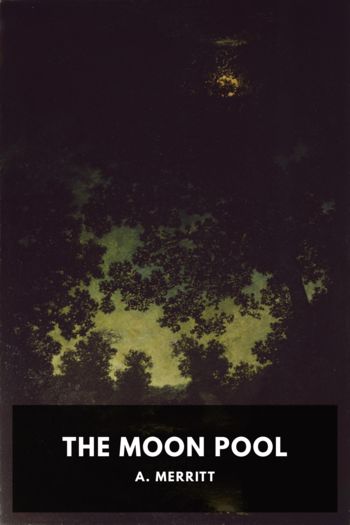How to Become a Witch by Amber K. (large ebook reader txt) 📗

- Author: Amber K.
Book online «How to Become a Witch by Amber K. (large ebook reader txt) 📗». Author Amber K.
How can you avoid these rare fake “covens” run by con artists? Read the questions on the next section; these reveal the danger signals that should warn you away from the imitations. Also check out a tool by respected Druid Isaac Bonewits, called “The Advanced Bonewits’ Cult Danger Evaluation Frame,” on the Internet.[1] Of course, calling something a cult doesn’t make it so; one definition of a cult is “a disparaging term that big cults have for little cults.” What is important is not who is name-calling at whom but the behavior of the group in question and whether it is respectful and empowering to its members or harmful. These are typical questions similar to those in the ABCDEF:
Signals That a Coven May Not Be Good for You
Does this group pretend to have the one-true-right-and-only way of doing Witchcraft? Are they critical of other groups or traditions?
Are students discouraged from mingling with other groups or taking classes elsewhere? Do leaders insist that they can teach everything you need to know?
When you ask tough questions, are leaders secretive or evasive?
Are large amounts of money demanded from members? (Modest dues are understandable.)
Has anyone made unwanted sexual advances or implied that sexual activity is expected?
Do leaders require you to perform personal services apart from helping to maintain the temple or ritual area?
Do they promise advancement through the degrees of initiation in return for sexual favors, monetary contributions, or personal services?
Is there discussion and acceptance of negative magick, magickal battles, revenge, counterspells, or the destruction of enemies?
Are the decor, symbols, and altar on the creepy side, with a focus on darkness and death? (Other than at Samhain, when death and darkness are appropriate!)
Are the leaders not to be questioned? Do they act as though their word is law?
Do you get warning signals from your inner bell, intuition, or gut feelings?
Trust your instincts. If it feels bad, walk away.
Finding A Coven That Fits
Let’s suppose that you want to join a coven and are starting the search. The perfect coven may not exist, but it’s helpful to list everything you want in a coven, just to clarify your thinking. Ask yourself lots of questions and write the answers in your Book of Shadows.
Do you want a mixed-gender coven or single-sex? Highly organized or loose? Lots of activities or only a meeting or two each month? Heavy on training and education or on celebration and fun? Associated with a particular tradition or culture (Celtic, Egyptian, Norse, etc.) or totally eclectic in their gods and styles? Consensus decision making, voting, or “the word of the high priestess is the law”? Adult-oriented or kid-friendly? Into environmental activism or meditation?
You may not have much choice in coven size, but the traditional range is small anyway. Christians can join the “little church on the corner” with seventy-two adults or the Sacred Surroundsound Multiscreen Megachurch with ten thousand believers. Covens are almost always between three and thirteen members. Five is kind of the practical minimum, and the average coven size in the United States is seven adults. When a coven gets to thirteen members or more, they traditionally “hive,” or split into two independent covens.
There are many denominations, or traditions, of Witchcraft in the world, but most of them won’t be represented in any single area, so you won’t always have a choice of traditions. In a large city there may be several. In a rural area, you may be lucky to find one coven and have to drive two hours to reach it. It is always worthwhile to ask what tradition a coven follows and how many other covens follow it. Ask how the coven’s tradition is different from other traditions. This will start to give you a feel for the coveners’ beliefs and style.
Covens can be found in a number of ways. You can try contacting covens online through Witchvox, the Covenant of the Goddess, Earth Spirit Alliance, Circle Sanctuary, Aquarian Tabernacle Church, the Pagan Federation, or other networking websites. You can hang out at your nearest metaphysical bookstore (which could be down the street or three counties away); talk to the staff, read the bulletin board, and look like an adorable puppy waiting to be adopted. You can go to festivals, public sabbat celebrations, and other Pagan events as discovered online or at the bookstore. Once there, attend lots of rituals and workshops, schmooze with merchants, and chat up folks at the fire circles until you get some leads on good covens.
Once you find a coven that looks good, you can’t just wander into an esbat and sign the membership book. Some covens will be closed to new members at the moment and may tell you to check back in six months. Others follow the traditional rule of “ask me three times,” so you have to prove that you are persistent and really want a chance. Some are just not very well organized and will lose your phone number.
Remember, covens don’t get points with God for scooping up converts, nor do they worry that you might go to some mythical hell if you don’t find The One True Faith. They want you in their coven only if it looks like everybody will benefit, and you are an unknown quantity until they get acquainted. So you may have to gently but repeatedly connect with coven members at several events, until they decide that you may be someone they would want as a covenmate.
Creating Your Own Coven
The traditional way to create a coven is to study with an existing one for several years, then hive—that is, start a new coven based on the same tradition, taking with you however many of the original coven’s members who want to come along.
In covens with the three-degree system of initiation, you





Comments (0)